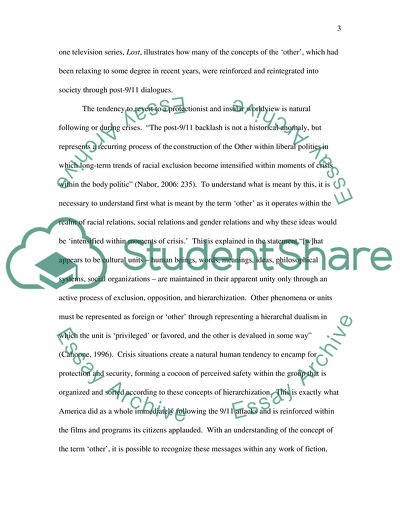Cite this document
(The Primary Means of Distributing Fiction Report, n.d.)
The Primary Means of Distributing Fiction Report. https://studentshare.org/culture/1713136-lost-tends-to-reassert-traditional-masculine-stereotypes-discuss-this-claim-in-relation-to-contemporary-anxieties-about-race-gender-and-class-in-post-911-ame
The Primary Means of Distributing Fiction Report. https://studentshare.org/culture/1713136-lost-tends-to-reassert-traditional-masculine-stereotypes-discuss-this-claim-in-relation-to-contemporary-anxieties-about-race-gender-and-class-in-post-911-ame
(The Primary Means of Distributing Fiction Report)
The Primary Means of Distributing Fiction Report. https://studentshare.org/culture/1713136-lost-tends-to-reassert-traditional-masculine-stereotypes-discuss-this-claim-in-relation-to-contemporary-anxieties-about-race-gender-and-class-in-post-911-ame.
The Primary Means of Distributing Fiction Report. https://studentshare.org/culture/1713136-lost-tends-to-reassert-traditional-masculine-stereotypes-discuss-this-claim-in-relation-to-contemporary-anxieties-about-race-gender-and-class-in-post-911-ame.
“The Primary Means of Distributing Fiction Report”. https://studentshare.org/culture/1713136-lost-tends-to-reassert-traditional-masculine-stereotypes-discuss-this-claim-in-relation-to-contemporary-anxieties-about-race-gender-and-class-in-post-911-ame.


